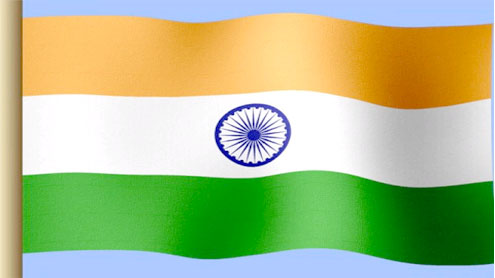 UNITED NATIONS: India’s aspiration for a permanent seat on the UN Security Council has received a blow as even a year after claiming the support of 80 members for its proposals to restructure the 15-member body, New Delhi has failed to prove it.
UNITED NATIONS: India’s aspiration for a permanent seat on the UN Security Council has received a blow as even a year after claiming the support of 80 members for its proposals to restructure the 15-member body, New Delhi has failed to prove it.
“If it’s said that 80 member-states support the G-4 (grouping India, Brazil, Germany and Japan) proposal, why not release a list of these states?” the Inner City Press, an online American news service posed the question. “Even the figure given by India is well short of the majority required for any proposal to succeed in the 193-member General Assembly,” it said.
At the current round of intergovernmental negotiations on reforming the Council to make it more effective and representative, India, which seeks expansion in both permanent and non-permanent categories, faced may questions about the efficacy of its proposal from skeptical member-states, especially the developing countries.Among the questions, India faced, were about its membership of two groups — G-4 and the so-called L69 group, given their different proposals on the reform process. The L69 group is now co-chaired by Jamaica and India.
Speaking in the debate on Wednesday, Pakistan’s delegate Raza Bashir Tarar underscored the need for “compromise and flexibility” among competing groups to move the reform process forward.He then posed a question: “If the India-led group wishes to add 4 to 6 new permanent members, how a workable ratio between permanent and non-permanent members can be maintained – especially if the Council’s size is to be restricted to about 25?”There was no response from the group’s leaders. A number of questions about the group position on other issues especially veto power, also remained unanswered.
Pakistan, which along with Italy leads the Uniting for Consensus (UfC) group, opposes any addition to the Council’s permanent members, but seeks enlargement of the non-permanent category, with longer terms.The Security Council currently has five veto-wielding permanent members — Britain, China, France, Russia and the United States — and 10 non-permanent members elected for two-year terms. Five key-issues under discussion in the negotiations on the Council reform are the category of membership, the question of veto, regional representation, the size of an enlarged Council, and the Council’s working methods and its relationship with the General Assembly.
Despite the general agreement on enlarging the council, as part of the UN reform process, member states remain sharply divided over the details, most of them sticking to their positions.Tarar, who is the deputy permanent representative of Pakistan to the UN, said “The India-backed initiative squeezes the space for non-permanent members and compromises the notion of accountability and democratization of the Security Council.” “Presence of more permanent members will increase competition for non-permanent seats, especially when non-permanent/ permanent ratio of 1:2 will be disturbed by adding 4 to six new permanent seat,” he added.
Moreover, he added, the new permanent members would impel some states to contest elections more frequently resulting in greater jostling for non-permanent seats. “That’s why we say that the proposal will lead to 4 winners and 184 losers.”The Pakistan delegate also debunked the recent claim made India/Jamaica- led group of having garnered an “overwhelming support” for their initiative. “Since last year, we have been pointedly asking L69-representatives to prove this purported support. None has been provided so far but claims persist,” he said. “We think it is time to move on instead of keeping the reform process hostage to a faulty initiative,” he added.
Tarar also asked: “How will the third category of permanent members without veto help the cause of reform when it can neither be accountable to the general membership nor claim any parity with the existing Permanent-5?”“How would a new permanent member of the Security Council, disencumbered from the obligation of election, be expected to cater for regional or a group’s aspirations? Once made the permanent member,” he said. “These countries can not be obliged to represent a geographic entity or a group.
About the difference between individual pursuits of permanent membership and group position on the issue —- like the OIC and the African Union, the Pakistan delegate said that their demand was basically about representation of a region and not individual representation.“This should explain South Africa’s inaccurate assertion that UfC and African positions are mutually exclusive,” he said, adding: “This also explains our support for the OIC’s unanimous position on Security Council reform.” – Nation












